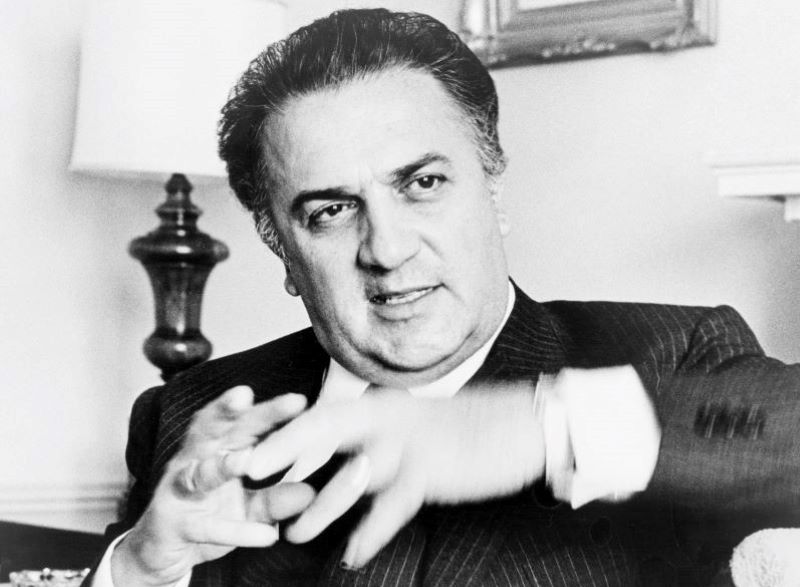 Federico Fellini
Federico Fellini 26TH KIFF: Centenary tribute to Federico Fellini (1920 – 2020)
Kolkata/IBNS: The KIFF had scheduled a retrospective of Federico Fellini’s films at the 15th edition of the festival in 2009. This year round, it is a centenary tribute. This time, we will get to watch five films and a documentary. These are I vittolini (The Wastrels), The Voice of the Moon, La Dolce Vita, Juliet of the Spirits and 8-and-a-half.
The documentary is The Making of La Dolce Vita directed by Giuseppe Pedersoli.
Italian filmmaker Federico Fellini’s name is synonymous with personal and highly idiosyncratic visions of society. His films are a unique combination of memory, dreams, fantasy and desire.
The adjectives ‘Fellinian’ and ‘Felliniesque’ are identified with extravagant, fanciful and at times, even baroque images in art in general and cinema in particular. Felliniesque is used to describe any scene in which a hallucinatory image invades an otherwise ordinary situation.
Internationally renowned filmmakers Woody Allen, Pedro Almodovar, Tim Burton, Terry Gilliam, Emir Kusturica, David Lynch, Girish Kasaravalli, David Cronenberg and Martin Scorsese have cited the influence of Fellini on their work.
The term paparazzi, now in common parlance, was born in Fellini’s La Dolce Vita, in which journalist Marcello Rubini (Marcello Mastroianni) derived it from the name of his photographer friend Paparazzo who photographed celebrities in every which way he could.
Two major films of Polish director Wojciech Has, namely The Saragossa Manuscript (1965) and The Hour-Glass Sanatorium (1973) throw up examples of modernist fantasies and have been compared to Fellini’s work for the “luxuriance of his images.”
Some say he drew generously from his childhood experiences for important segments in his films, particularly I vitelloni (1953), 8½ (1963) and Amarcord (1973.) But his close associates such as screenwriters Tullio Pinelli and Bernadino Zapponi, cinematographer Giuseppe Rotunno and set designer Dante Ferreti had a different take on this. They insisted that Fellini invented his own memories for the pleasure of narrating them in his films.
In 1942, Fellini met Giuletta Masina who played the role of Pallina in the radio serial. In 1943, they were married, marking one of the greatest creative partnerships in world cinema. Fellini died on the day after his 50th wedding anniversary while Giuletta died six months later. Their personal tragedies soon after marriage, with Masina having suffered a miscarriage followed by the birth of their son Peir Federico who died a month after he was born is said to have inspired the conception of La Strada (1954).
I vittolini (The Wastrels) (1953) got Fellini his first distribution abroad and won the Silver Lion at Venice. Isabel Quigley called the film “one of the most profound social commentaries I have met in the cinema – the portrait, piercingly accurate, of a generation and a country’s dilemma; and the story, sour-sweet, hopeless, and always human, of five well-nourished, spiritually starved, not-so-young men.”
Other critics see it as a step away from the social preoccupations of neorealism toward the development of Fellini’s conception of character. Fellini himself said that he was portraying not “the death throes of a decadent social class, but a certain torpor of the soul.”
(Reporting by Shoma A. Chatterji)
Support Our Journalism
We cannot do without you.. your contribution supports unbiased journalism
IBNS is not driven by any ism- not wokeism, not racism, not skewed secularism, not hyper right-wing or left liberal ideals, nor by any hardline religious beliefs or hyper nationalism. We want to serve you good old objective news, as they are. We do not judge or preach. We let people decide for themselves. We only try to present factual and well-sourced news.






